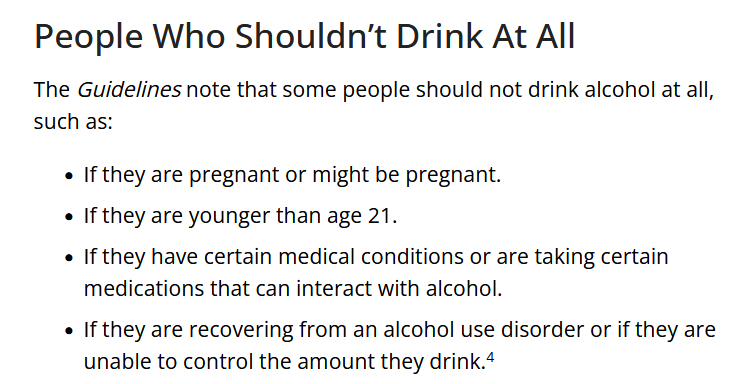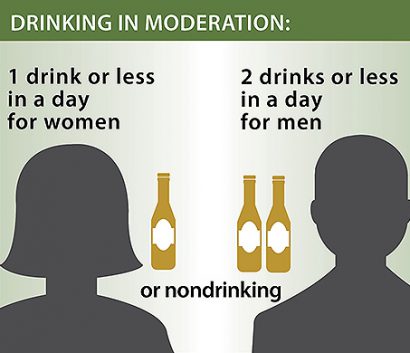Alcohol: Am I drunk? How much is too much alcohol? How long does alcohol stay in your system? & More

How much alcohol is too much?
It is true that some people are more tolerant of the effects of alcohol than most, while others are more susceptible to get drunk. However, there are general recommendations provided by the Centers for Disease Control and Prevention (CDC).
General guidelines that the CDC provided
This can serve as a starting point for understanding moderate and excessive alcohol consumption.
Equivalent to 12 ounces (355 ml) of beer, 8 ounces of malt liquor, 5 ounces (148 ml) of wine, or 1.5 ounces (44 ml) of distilled spirits;
Moderate drinking guidelines are:
- For men: Up to 2 standard drinks per day
- For women: Up to 1 standard drink per day
Could I be considered drunk right now?
Common signs tend to be:
- Slurred speech;
- Difficulty walking or maintaining balance;
- Slow reaction time; And
- Lightheadedness.
Do keep in mind however, that the effects of drunkenness can vary from person to person; Everyone reacts to alcohol differently.
If you are still unsure whether you are drunk or not, check out the other signs of drunkenness. Better yet, ask a friend to read it for you and assess your level of intoxication.
How long does alcohol stay in your system?
The amount of time it takes for alcohol to leave your system is based on several factors:
- Type of alcohol consumed;
- Amount of alcohol consumed;
- Your body weight and body composition;
- Hydration levels before and after drinking;
- How fast your metabolism is;
- Your overall health;
- etc.
There are far too many factors to consider to accurately measure how long alcohol stays in your system.
However, we can provide insights to help you better estimate how long alcohol will stay in your system.
Insights that may help you estimate how long alochol will stay in your system:
- Distilled Spirits like whiskey, vodka, rum, etc., take longer to metabolize because of their high alcohol content, while Wine may be processed faster compared to the drinks mentioned before.
- Alcohol is water-soluble, so being well-hydrated may help dilute alcohol in the body.
- Since muscle mass in the body contains water, a higher proportion of lean body mass may contribute to a faster metabolism.
- Another thing to consider is how healthy and efficient your liver is, the liver is after all, the primary organ responsible for metabolizing alcohol.


Possible health benefits of Alcohol
Most, if not all of the health benefits mentioned below is only applicable to light to moderate drinking. Excessive consumption of alcohol typically do not have any health benefits.
Good for the heart
Some studies suggest that moderate alcohol consumption, particularly of red wine, may be associated with a reduced risk of heart disease.
This is thought to be due to alcohol's potential to raise high-density lipoprotein (HDL or "good" cholesterol) levels and have anti-inflammatory effects.
Click for more details
"We found that moderate wine consumption defined as 1-4 drinks per week was associated with a reduction in risk for cardiovascular mortality when compared with beer or spirits. However, higher risk for cardiovascular disease mortality was typically seen with heavier daily or weekly alcohol consumption across all types of beverages."
Source: https://www.ncbi.nlm.nih.gov/pmc/articles/PMC9529807/
"HDL apolipoproteins remain a promising therapeutic target in patients with HF."
Source: https://www.ncbi.nlm.nih.gov/pmc/articles/PMC8958020/
May increase life expectancy
Conventional wisdom suggests that moderate alcohol consumption may be linked to increased longevity.
But science has yet to support the idea.
Healthier Bones
Some studies have suggested that moderate alcohol consumption may be associated with higher bone mineral density, potentially reducing the risk of osteoporosis. More research is needed however.
Click for more details
"Light to moderate alcohol consumption is generally reported to be beneficial, resulting in higher bone mineral density (BMD) and reduced age-related bone loss, whereas heavy alcohol consumption is generally associated with decreased BMD, impaired bone quality and increased fracture risk."
...
"Although there have been advances in understanding the complex actions of alcohol on bone, much remains to be determined. Limited evidence implicates age, skeletal site evaluated, duration and pattern of drinking as important variables."
Source: https://www.ncbi.nlm.nih.gov/pmc/articles/PMC4918769/
Health Risk of Alcohol
Liver Damage
Chronic heavy drinking can lead to liver conditions such as fatty liver, alcoholic hepatitis, and cirrhosis.
These conditions can impair liver function and, in severe cases, lead to liver failure.
Cardiovascular Issues
While moderate alcohol intake may have potential cardiovascular benefits, excessive drinking can contribute to high blood pressure, cardiomyopathy (disease of the heart muscle), and an increased risk of heart failure.
Increased Cancer Risk
Chronic alcohol consumption is associated with an increased risk of developing certain types of cancer, including liver, breast, esophageal, and colorectal cancers.
Addiction and Dependence
Heavy drinking over time can lead to alcohol dependence and addiction, which results in the inability to control or stop drinking despite negative consequences.
Impacts Mental Health (in a bad way)
Alcohol abuse (heavy drinking) can contribute to mental health issues such as depression and anxiety, impairs cognitive function, an increase risk of dementia, and much more.
Gastrointestinal Issues
Alcohol can contribute to digestive problems, including inflammation of the stomach lining, pancreatitis, and an increased risk of gastrointestinal bleeding.
Reproductive Issues
Excessive alcohol consumption can lead to reproductive issues, including infertility and an increased risk of complications during pregnancy.
Further Details
Eight Signs of Drunkenness
Slurred Speech
Slurred speech, the difficulty of speaking coherently, is a common sign to see if someone is drunk.
This is because alcohol affects the central nervous system, and when consumed too much, it leads to changes in behavior, coordination, and speech.
Impaired Coordination
Drunkenness and impaired coordination often go hand in hand. And the reason for this is the same as above, alcohol affects the central nervous system (in a bad way).
Example: Having trouble with balance and motor skills; stumbling or swaying.
Changes in behavior
Individuals may experience a decrease in inhibitions, leading to behaviors they might otherwise avoid when sober.
Changes of behavior like:
- Elevated Confidence: Some individuals become overly confident or exhibit a sense of bravado, taking risks they might not consider when sober.
- Increased Talkativeness: Alcohol can lead to heightened sociability and increased talkativeness as inhibitions decrease.
- Aggression or Irritability: In some cases, alcohol can lead to increased aggression or irritability, especially in situations where emotions are heightened.
- etc.
Difficulty Concentrating
As a person becomes intoxicated, their ability to concentrate and focus on tasks diminishes, typically manifesting as distractibility and forgetfulness.
Slow Reaction Time
They probably won't recognize it themselves, but individuals who are intoxicated have slower reaction time than normal.
This is because alcohol slows down the central nervous system.
Nausea or Vomiting
Feeling nauseaous or vomiting are never good signs for anything.
When you feel like vomiting after consuming alcohol moments or minutes after all, then there is a good likelihood that you are drunk;
You should probably stop drinking at that point too..., but I guess you don't need me to tell you that.
Drowsiness and Fatigue
Feeling excessively tired or lethargic can be a sign of drunkenness. This is because one of the effects of alcohol is to induce the feeling of relaxation and sedation.
Memory Lapses
Just like in movies and TV shows, alcohol can make it difficult for one to recall memories after a long night of drinking.
This is because alcohol interferes with the brain's memory formation and retrieval, making it more challenging to recall memories, and sometimes it can lead to amnesia.
Copyright ©2023 by Marshall Vulta





Comments ()